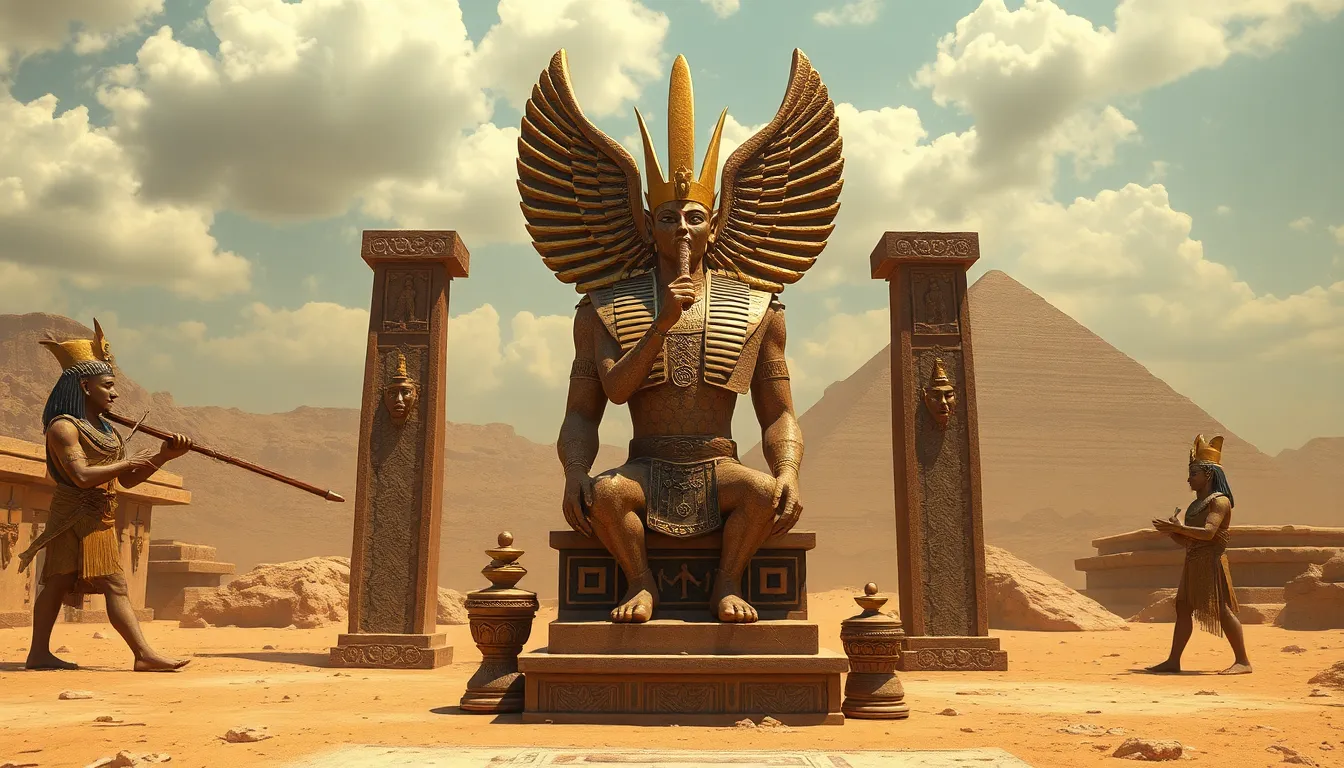The Role of Music in Ancient Egyptian Worship
I. Introduction
The ancient Egyptian civilization stands as one of the most fascinating and influential cultures in human history. Known for its monumental architecture, sophisticated societal structures, and rich mythology, ancient Egypt was a civilization deeply rooted in religious beliefs and practices. Religion permeated every aspect of daily life, shaping the moral and ethical framework of its people.
This article aims to explore the significance of music in ancient Egyptian worship, highlighting its role in facilitating communication with the divine and enhancing various religious ceremonies.
II. Historical Context of Music in Ancient Egypt
Music has been an integral part of Egyptian culture for millennia, with its development tracing back to the early dynastic periods. The timeline of music in Egypt can be segmented into several key phases:
- Prehistoric Period: Early forms of music likely included simple vocalizations and the use of natural instruments.
- Old Kingdom (c. 2686–2181 BCE): Development of more sophisticated musical instruments, including harps and flutes.
- Middle Kingdom (c. 2055–1650 BCE): Increased complexity in musical compositions and the emergence of professional musicians.
- New Kingdom (c. 1550–1070 BCE): The peak of musical development, with a wide variety of instruments and the formalization of music in worship.
Musical instruments used in ancient Egypt included:
- Strings: Harps, lyres, and lutes.
- Wind Instruments: Flutes and oboes.
- Percussion: Drums and sistrums.
The geography of Egypt, with its vast deserts and the Nile River, influenced musical practices, as communities adapted sounds and rhythms to their environments.
III. Theological Significance of Music
In ancient Egyptian belief, music served as a powerful means of communication with the divine. It was thought that music could invoke the presence of gods and goddesses during worship. The theological significance of music is reflected in several key areas:
- Communication with the Divine: Music was seen as a way to convey messages to the deities, expressing devotion and seeking favor.
- Rituals and Ceremonies: Music played a pivotal role in various rituals, enhancing the sacred atmosphere and marking significant religious events.
- Symbolism: Different musical elements, such as tempo and pitch, held symbolic meanings that were integral to worship practices.
IV. Types of Music in Sacred Contexts
Within the context of worship, various types of music were utilized, each serving distinct purposes:
A. Chants and Hymns
Chants and hymns were structured forms of vocal music, often featuring repetitive phrases and melodic lines designed to express praise and devotion. These were commonly performed in temples and during religious festivals.
B. Instrumental Music
Instrumental music complemented vocal performances and was vital during rituals. The types of instruments used included:
- Harps: Often used in temple settings for their soothing tones.
- Sistrums: A percussion instrument associated with the goddess Hathor, used to invoke her presence.
C. Dance and Music
Music and dance were inseparable in religious contexts, creating a harmonious interplay that enhanced worship. Dancers would often interpret the rhythms and melodies through movement, adding a visual dimension to the spiritual experience.
V. Music in Specific Religious Practices
The role of music varied across different religious practices in ancient Egypt:
A. Funerary Rituals
Music played a critical role in funerary rites, believed to assist the deceased in their journey to the afterlife. Specific chants and instrumental pieces were performed to honor the dead and guide their souls.
B. Temple Worship and Festivals
In temples, music was an essential component of daily worship and special festivals. Each festival featured unique musical compositions that celebrated specific deities and mythological narratives.
C. Healing and Protective Spells
Music was also used in healing practices and protective spells, with specific melodies believed to have curative properties. Priests and healers would often chant during rituals to invoke divine assistance in health matters.
VI. The Musicians of Ancient Egypt
Musicians held a unique status in ancient Egyptian society, often revered for their skills and contributions to worship. Key aspects of musicianship included:
A. Status and Roles
Musicians were often associated with temples and royal courts, enjoying a respected position within society. They were seen as intermediaries between the divine and the people.
B. Training and Education
Musicians received formal training in musical techniques, often starting from a young age. Apprenticeships under skilled musicians were common, ensuring the transmission of musical knowledge.
C. Notable Musicians
Throughout history, several musicians gained fame for their contributions to worship, with some being immortalized in inscriptions and art.
VII. Legacy of Music in Ancient Egyptian Worship
The legacy of ancient Egyptian music continues to resonate through time:
A. Influence on Later Cultures
Music from ancient Egypt influenced various cultures and religions that followed, leaving a lasting impact on the Mediterranean and beyond.
B. Preservation of Ancient Music Traditions
While much of the ancient music has been lost, certain traditions and practices have been preserved, allowing for a glimpse into the musical heritage of ancient Egypt.
C. Modern Interpretations
Today, musicians and scholars are exploring and adapting ancient Egyptian music, creating new interpretations that honor its rich history while making it accessible to contemporary audiences.
VIII. Conclusion
In summary, music played a vital role in ancient Egyptian worship, serving as a bridge between the mortal and divine realms. Its significance can be seen in rituals, sacred ceremonies, and the daily lives of the people. The enduring impact of music in spiritual practices invites us to further explore its role not only in ancient civilizations but in the fabric of human culture as a whole.
As we reflect on the importance of music in the lives of the ancient Egyptians, we are reminded of its power to connect us to our deepest beliefs and to one another across the ages.




